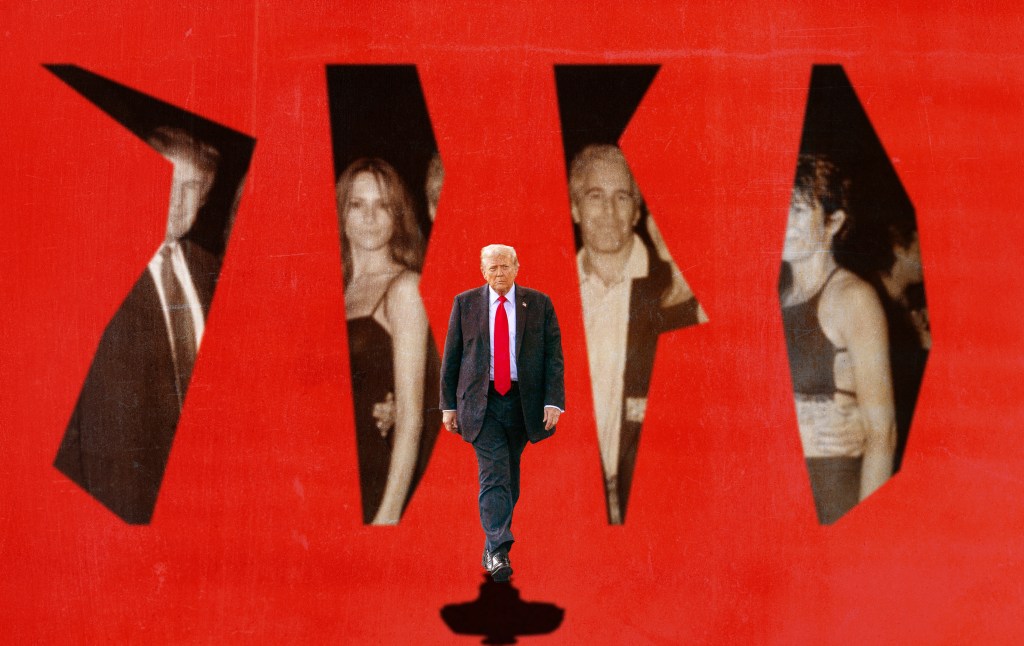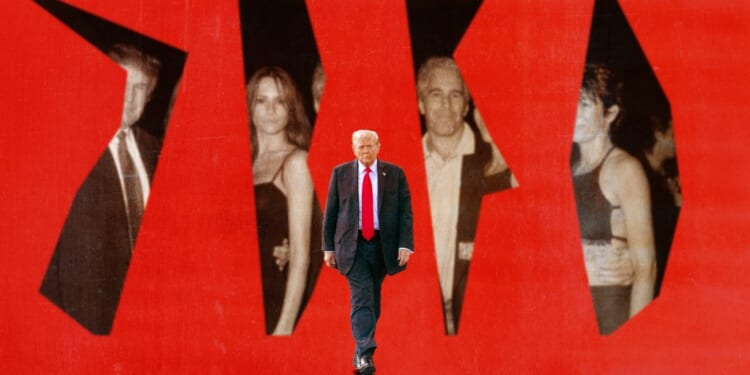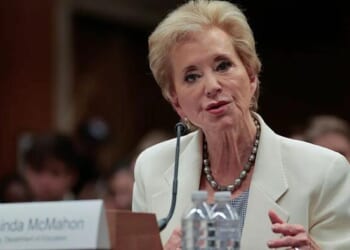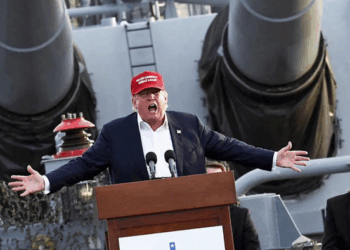
Disillusionment.
Three things have changed, specifically. One is that the silly myth of Trump’s political and economic invincibility has been discredited.
He won a narrow popular-vote victory over a lackluster emergency Democratic nominee last year because swing voters assumed he’d magically restore the economy of 2019, especially the pre-inflation cost of living. But, to many Republicans, his win looked like a decisive national repudiation of leftism—and not without reason. The guy tried a coup, then ran an entire national campaign based on revenge against his enemies and still became the first Republican in more than 20 years to earn more votes than his opponent. Americans must really love Trump and/or hate liberals!
As of last Tuesday, the bloom is fully off that rose. The GOP was stomped in off-year elections and the obvious cause was disillusionment about the economy. Trump’s numbers on handling inflation have cratered, with 75 percent of Americans and 57 percent of Republicans agreeing that he isn’t focused enough on lowering costs. He also gets far more blame for the current state of the economy than his predecessor does, which probably wouldn’t be the case if he hadn’t pursued a massively disruptive trade policy that Americans despise.
The president continues to dominate his party and his government, but he just isn’t the conquering political hero that the right imagined him to be a year ago.
Another thing that’s changed is his willingness to break with “America First” orthodoxy, sometimes in shocking ways. One such break happened 24 hours ago when he defended his support for H-1B visas in terms not even a woke Democrat would attempt. When Fox News’ Laura Ingraham asked him why we need to import highly skilled immigrants when we have talent here at home, Trump replied, “No, you don’t, no you don’t … you don’t have certain talents, and people have to learn.”
What he meant, I think, is that sometimes foreign businesses opening factories in the U.S. need to bring in specialists from home to train American employees in their trade. But that sure isn’t how it sounded to nationalist influencers, who bristled at the thought that jobs in America should go to anyone but Americans and at the insinuation that foreigners might be able to do those jobs better.
Maybe they would have let him slide if he had delivered on other “America First” priorities, but his foreign policy over the last four months has also disappointed them by being more George W. Bush than Trump. He backed Israel, the bête noire of postliberals in both parties, to the hilt in its war in Gaza; he tilted towards Ukraine’s side against Russia after Vladimir Putin wouldn’t agree to a ceasefire; and he’s poised to launch a war of choice in Venezuela aimed at regime change for reasons no one quite understands.
The guy’s practically a neoconservative now. “Trump needs to ditch the foreign policy crap and focus all his attention on the domestic economy, which is still not working for the majority of people,” The Federalist founder Sean Davis complained in a tweet last weekend. Do you have any idea how badly the president needs to screw up to get The Federalist to say an unkind word about him?
There’s one more thing that’s changed since July. An unexpected power vacuum has opened up on the activist right, potentially with consequences for Trump.
Destabilization.
That vacuum was caused by the murder in September of Turning Point USA chief Charlie Kirk, a blow that more than one postliberal influencer has blamed for recent dissension on the right.
“It’s become very clear, in retrospect, that Charlie Kirk was holding the Right together and that we need J.D. Vance to step into that role, which will require settling disputes and laying out the boundaries of the coalition,” Christopher Rufo observed. “Nixon figured out how to do this after being VP.”
The Daily Wire’s Matt Walsh went further, approvingly citing this tweet from another user: “It took just a few weeks for our collective anger and grief to turn into blackpilling and infighting. The right is far more divided than before Charlie was taken from us.” Surely the left will learn from this that assassinations work and will aim to murder more right-wingers, Walsh calmly reasoned.
I don’t think Charlie Kirk was “holding the right together,” a distinction that obviously belongs to the president. Nor do I think the vice president will lift a finger to settle intramural disputes or usher anyone out of the big right-wing tent unless it becomes in his electoral interest to do so, which it probably won’t. J.D. Vance is in the business of accumulating power for J.D. Vance, not cleansing the right of cretins whose departure might shrink his 2028 electoral base.
The idea that Kirk was some authoritative arbiter of right-wing litmus tests is itself hogwash. He inched toward groyperism in his final years to pander to Nick Fuentes’ fan base, and his views on Israel, a nation he had long supported, had not coincidentally grown “complicated and … nuanced” before his death. Kirk achieved the stature he did among populists more so by complying with their litmus tests than by demanding that they comply with his.
But I do think Rufo and Walsh are onto something in detecting a destabilizing power vacuum left by Kirk’s murder.
Someone needed to supply a vision of the right’s future in Kirk’s absence, and someone has. Tucker Carlson, Nick Fuentes, and Candace Owens have gained influence by offering Jew-baiting postliberalism to young Republicans weaned on ruthlessness and in search of generational activist leadership. When conservative writer Rod Dreher visited Washington recently and talked to right-wingers there, he claims numerous Beltway types agreed with an estimate that 30 to 40 percent of D.C.’s young GOP politicos are fans of Fuentes—already, with Fuentes still a relatively obscure figure.
Which feels like an ominous sneak preview of how the broader Republican Party might tilt once the real power vacuum at the top opens up in 2028, if not before.
I think that explains the outsized freakout among traditional conservatives at another obscure figure, Heritage Foundation chief Kevin Roberts, over his glad-handing of Carlson. No one outside Republican Washington may care what Roberts thinks, but the fact that Reaganism’s most esteemed think tank is pivoting to accommodate antisemitism with three years still left on the clock for Trump is a dreadful indicator of where the right’s grassroots energy is and therefore where the GOP is heading institutionally.
It’s also a hint that the president himself might no longer be the singular repository of political authority among Republicans. Between the disillusionment populists have begun to feel about him and their growing appreciation of more toxic figures like Carlson and Fuentes, one wonders if prominent postliberals might not start challenging him for leadership of the right even before he’s left office.
Fuentes has already begun attacking the president, for instance—over the Epstein files, among other things. Carlson has complained about the matter too, more tactfully than Fuentes when criticizing Trump directly but also more aggressively by floating accusations he knows will create political discomfort for the president. Marjorie Taylor Greene, who’s broken with Trump on all sorts of issues since the summer and shows no signs of relenting, is one of four House Republicans to sign Massie’s discharge petition to release the Epstein files.
It’s a perfect wedge issue for populists eager to challenge Trump’s authority given that the grassroots right is primed from years of QAnon paranoia to want to take sides with anyone seeking to expose the child molesters who supposedly run America. Traditionally, those people have backed Trump in any dispute in which he’s involved, but this time he’s not just aligned with Team Pedo in covering up the Epstein files; he’s being opposed by figures like Carlson, Fuentes, and Greene, whose more militant postliberalism arguably grants them greater populist credibility than the president himself.
Which is something new in the Trump era. For 10 years the president has used the logic of “no enemies to the right” to demagogue and marginalize mainstream Republicans who object to his policies or his behavior. That worked for him because there was no one further to the right than Trump himself, if we define being “to the right” by one’s skill and gusto at owning the libs and provoking their tears. Radical postliberalism of the Carlson-Fuentes variety is the first time since 2015 that some rival authority has emerged with arguably a stronger claim than Trump himself to the sort of ruthlessness that right-wingers equate with political virtue.
How destabilizing might that be for the GOP?
The status quo.
Probably not very. When in doubt, bet on partisanship to hold a coalition together.
The president’s political constituency is orders of magnitude bigger than Charlie Kirk’s was. He and Kirk are alike in that each of them is less malevolent than his worst fans, but Kirk’s audience was small and niche enough that he needed to worry about alienating young right-wingers eager to experiment with the hard populist drugs that Fuentes and his groypers are selling.
By comparison, there isn’t much radical postliberals can do to hurt a term-limited president in whom the entire Republican Party has no choice but to remain deeply invested until 2029. Even if they found a way to hurt him, carving a point or two off his job approval by flogging the Epstein files every day, they’d be picking a fight with a corrupt authoritarian who’s proved that he’s willing to use law enforcement to hurt those who’ve hurt him. Do you really think Tucker Carlson wants a piece of that action?
If militant postliberals begin positioning themselves against the White House forthrightly, it won’t be because they’re trying to supplant Trump in influence. It’ll be because they’re moving early to fill the power vacuum that will open in 2028, either by rallying populists to reject heir apparent J.D. Vance or by pressuring Vance and the lily-livered, power-hungry Republican establishment to move toward their positions the same way Charlie Kirk did.
Fuentes has already threatened to haunt Vance on the campaign trail in three years if he bows to political pressure to condemn the groypers. (That’ll test Rufo’s fantasy of the VP setting “boundaries” for the Republican coalition.) Carlson is much friendlier with the vice president, having promoted his political career tirelessly, but is doubtless expecting considerable “America First” policy dividends from a Vance administration in return. At the very least, he surely expects his friend J.D. to turn a blind eye as he goes about normalizing demagoguery of Israel on the right.
And so, as tends to happen with Donald Trump’s failures, other people will pay the price more than he will. Should loyalty to the president on the right continue to slip, I suspect militant postliberals will take advantage by trying to gain the allegiance of disaffected populists by attacking standard-bearers of the Trumpified GOP more so than Trump himself. That’s already begun too, not just with respect to Vance but with respect to Trump lackeys like Ted Cruz. But it will grow more aggressive as the president’s grip on the party slips, because figures like Carlson and Fuentes will want to drive home to their admirers before 2028 that the most urgent threat to America isn’t from the left, it’s from the wimpy, non-postliberal right.
That’s another tactic that’s worked for the president for 10 years, beginning with his crusade against the Bush establishment in the 2015 primary, and radical postliberals will now seek to turn against his acolytes in the party. The Bush GOP didn’t go nearly far enough; the Trump GOP hasn’t gone far enough either; and the Vance GOP won’t go far enough unless the right’s Lindbergh faction brings all of its power to bear on making it look more like a Carlson-Fuentes GOP.
It’s not the enemies on the left who are the immediate problem, it’s the enemies on the right. That’s Trumpism, and its logic will be applied against Trumpism if the worst people in the party have their way. I’m not rooting for them, but it’s hard to say that the president and his enablers don’t deserve it.Paid content begins here.
















